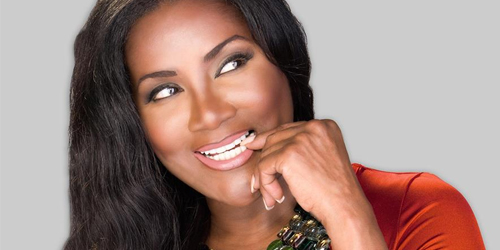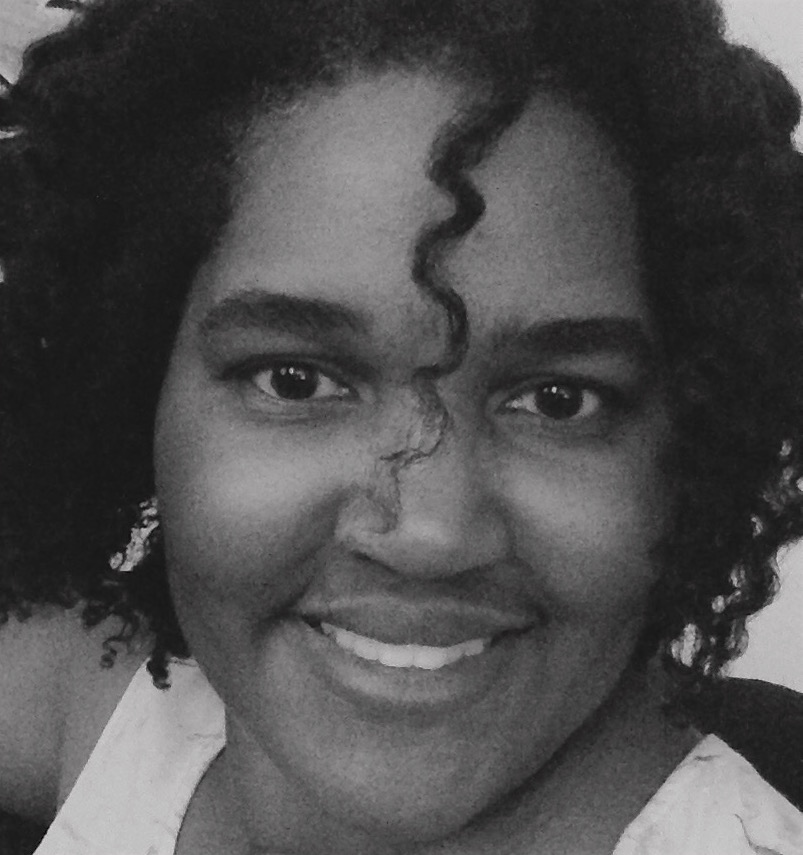#BlackSkinWhiteSin: Shielding Our Girls From Misogynoir…Even When It Comes From the Church
By Kimberly Peeler-Ringer
 I was getting a feel for my own preaching voice right around the time Juanita Bynum’s “No More Sheets” came out. I still have the cassette tape a friend gave me, saying, “gurl, you’ve got to hear her preach!” I remember how it made me feel: like the woman taken in adultery, all by herself, shamed and blamed. One thing in particular sticks out, Bynum’s admonition that “we don’t know what to do with all this body.” And based upon “No More Sheets Part 2,” we apparently still don’t:
I was getting a feel for my own preaching voice right around the time Juanita Bynum’s “No More Sheets” came out. I still have the cassette tape a friend gave me, saying, “gurl, you’ve got to hear her preach!” I remember how it made me feel: like the woman taken in adultery, all by herself, shamed and blamed. One thing in particular sticks out, Bynum’s admonition that “we don’t know what to do with all this body.” And based upon “No More Sheets Part 2,” we apparently still don’t:
That skirts are so tight and short until half of your thighs are out? And you‘re ministering, and you’re standing on pulpits…preaching and leading praise and worship with no stocking on…with thongy, stringy shoes on, your legs all greased up, what kind of message are you trying to send us? Because to me, that look like somebody that’s got a hoe spirit, that ain’t purged out in God and any minute you can just go over in a corner to a deacon, and just raise your dress up, and hit it right there in the corner, because you don’t even have drawers on. You got on thongs! And a bip bop skirt!
I will pick back up on Bynum’s quote in a moment, but a bit of back-story is warranted here. During the Civil Rights Movement Black Christians pricked the conscience of America by identifying racial segregation as a moral issue — that any treatment of Blacks as “less than” went against the teachings of Christ. Regrettably, the Black Christian response to sexism as a moral issue has not received the same kind of attention. Patriarchy, in its simplest terms, is the privileging of maleness, which functions much like racism in that there are institutional and embedded structures that oppress women through social, political and economic practices. Black women experience racism, sexism, classism and other isms in ways that make our experience unique. Scholar activist Moya Bailey refers to this as misogynoir, “the intersection of racism, anti-Blackness and misogyny that Black women face.”
Since the first African women and girls were forced upon slave ships where shipmates raped them repeatedly, stereotypes were crafted in order to normalize diabolical behavior. Joan Morgan explains the complete disregard for Black female humanity in When Chickenheads Come Home to Roost when she writes, “that filthy task of satisfying baser needs was best left to black women, whose ‘hot-blooded’ constitutions rendered them strong enough to take it.” During both slavery and segregation, white rapists preying upon Black women and girls seldom faced any consequences. This prompted Rosa Parks to travel on behalf of the NAACP to take the statement of a woman who had been gang-raped by six white men in Alabama, a decade before she refused to give up her seat on a bus to a white rider. Unfortunately, many stories like this are outlined in Danielle L. McGuire’s At the Dark End of the Street.
Though many historians privileged the stories of men during North American slavery and the Civil Rights Movement, women writers like Morgan, McGuire, and others aid us in recovering women’s contributions and experiences. And so I wonder, what would it mean for Black churches to include Black women and girls’ histories of violence and liberation in the collective cultural memory? Too many in Black churches continue to privilege the male point of view — just as Bynum does in the quote above. Likewise, far too many Black churches and congregations embrace strands of the same theologies that enabled slaveholders to beat and rape a Black woman on Friday then go to church on Sunday, without any condemnation or conviction. What I mean to note here is how male lust is too often excused, and how it may lead to violences against everyone, but particularly women and girls.
What if we recovered and centered those stories and how entangled they are with demonizing stereotypes? What if we chose to critique masculinist libidinous gazing rather than police women’s bodies? The persistent devaluation and policing ravages Black female self-esteem. This is exactly what Bynum does in “No More Sheets Part 2.” She assumes men are victimized by women’s choice of dress and thus articulates shame-based rhetoric meant to make Black women and girls self-conscience about the curves God gave them. And this is merely an appetizer inviting self-loathing, the starter course for a meal too many Black theologies are serving up on a silver platter. At some point, we need to recognize how many pairs of Black women’s hands continue to help with the cooking. How many bodies are attached to those hands. And how many stories those bodies may recover, if given space.
We cannot expect Black women and girls to value themselves if we co-sign God’s name onto messages that suggest our bodies, and the celebration thereof, are demonic, that our sexuality is toxic, and that men have no responsibility to control their gazes or desires. With this in mind, it is imperative that we find ways to talk about women and girls’ bodies positively in the church, as divinely and wondrously made in God’s own image, as well as our histories. Not doing so helps maintain intersecting cultures of violence. To be clear, sexual assault is a much bigger problem than sexual arousal. 60% of our Black girls report experiencing sexual assault before reaching their 18th birthday (Black Women’s Blueprint). Some of these violences happen in the church and/or by church members. Failing to center sexism and classism (along with racism), recover women and girls’ histories of agency and violence, and their right to be autonomous consenting choosing bodies, enables such cultures of violence to thrive.
In “No More Sheets 2,” Bynum centers the male gaze when she blames women and girls for men that ‘fail their wives.’ But also, she ignores the church’s history of sexual abuse, and particularly where grown men are the aggressors against pubescent and teen girls. Ideally, the church should be a place of sanctuary. However, this cannot happen as long as the Black preaching tradition ties the Sacred to misogynoir, or as long as our talk about bodies privileges the heteropatriarchal male perspective. We need to collectively resist. But in the meantime Black women must do the hard work of shielding our girls. And this is no easy task. As “woke” as I think I am, I still have to fight to keep myself from internalizing messages that Black women’s bodies are locations of inherent lubricity. Truth is, like many of us, I was twelve years old the first time a random man propositioned me on the street. We need language and rituals to combat this. But if we continue teaching girls (and women) that they cause lust simply by inhaling and exhaling, then we are affirming not only that men are not responsible for their own self-control, but the act of violence itself. Moreover, what kind of message does this send about consent?
Empowering conversations in the church about sex, consent, pleasure, resistance, rape, desire, etc., which imagines the body — all bodies — as sacred rather than a source of unholy contempt, and sex as human rather than a gender specific samurai sword, allows us to consider the uplifting of women and girls as a moral issue. I certainly do and teach from that perspective. And I believe Jesus supports that. The church should never be a place where Black women experience misogynoir, particularly when you consider the struggle it would be simply to pay the light bill if Black women withdrew their financial support and left their churches en masse. But it shouldn’t be this sort of place just because. Who wants to worship a God that tells you—and only you—that your temple is toxic? Perhaps we should consider that many young women have already left the building because the churches they attended failed to make them feel as though God is with them, or that God cares and sees them. Let’s just say there are spiritual consequences for all of this.
 Minister Kimberly Peeler-Ringer is a former television news producer with graduate degrees in biblical and religious studies from the Morehouse School of Religion at the Interdenominational Theological Center in Atlanta, Georgia and Vanderbilt University. She is the founder and creator of www.thechurchedfeminist.com, and has been selected as one of the contributors to the upcoming King Bey Bible anthology. She is also a Christian Education consultant who specializes in developing curriculum that privileges the African-American woman’s experience, and identifies as a Black feminist follower of The Way. “If a woman could carry the Word of God in her womb, she can surely carry it in her mouth.” You can follow her on Twitter @churchedfem.
Minister Kimberly Peeler-Ringer is a former television news producer with graduate degrees in biblical and religious studies from the Morehouse School of Religion at the Interdenominational Theological Center in Atlanta, Georgia and Vanderbilt University. She is the founder and creator of www.thechurchedfeminist.com, and has been selected as one of the contributors to the upcoming King Bey Bible anthology. She is also a Christian Education consultant who specializes in developing curriculum that privileges the African-American woman’s experience, and identifies as a Black feminist follower of The Way. “If a woman could carry the Word of God in her womb, she can surely carry it in her mouth.” You can follow her on Twitter @churchedfem.




Pingback: #BlackSkinWhiteSin: From Pernicious Editing to Audacious Rescripting (Benediction) - The Feminist Wire